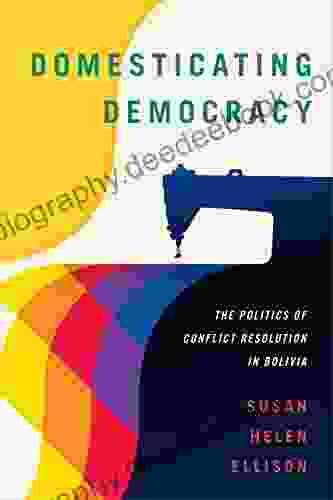The Politics of Conflict Resolution in Bolivia: A Comprehensive Examination

Historical Context: A Legacy of Conflict
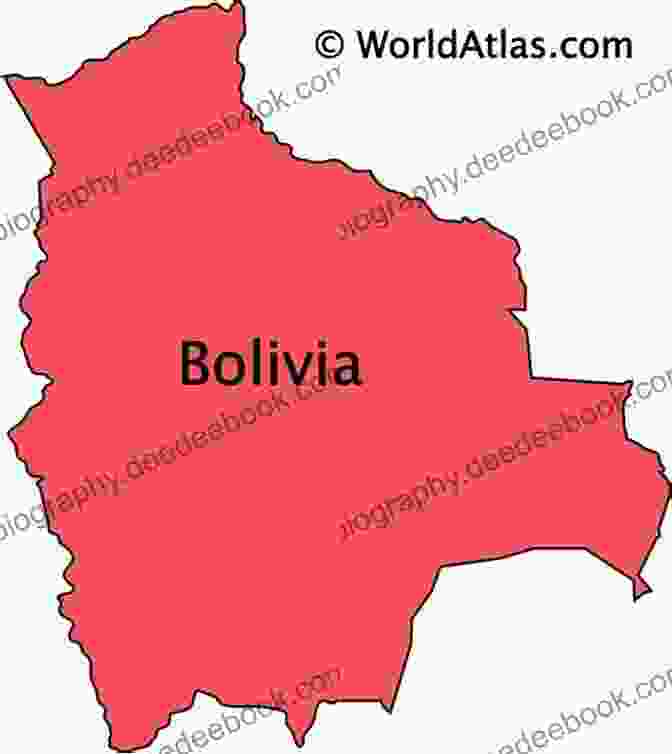 Bolivia's history is marked by a long-standing legacy of social and economic conflict. The country has endured cycles of instability, fueled by factors such as poverty, inequality, and ethnic tensions. The lingering effects of colonialism and postcolonial governance have further exacerbated these divisions, leaving an imprint on the way conflicts are addressed and resolved.
Bolivia's history is marked by a long-standing legacy of social and economic conflict. The country has endured cycles of instability, fueled by factors such as poverty, inequality, and ethnic tensions. The lingering effects of colonialism and postcolonial governance have further exacerbated these divisions, leaving an imprint on the way conflicts are addressed and resolved.
5 out of 5
| Language | : | English |
| File size | : | 18005 KB |
| Text-to-Speech | : | Enabled |
| Enhanced typesetting | : | Enabled |
| Word Wise | : | Enabled |
| Print length | : | 296 pages |
| Screen Reader | : | Supported |
| Item Weight | : | 1.32 pounds |
| Paperback | : | 528 pages |
| Dimensions | : | 5.59 x 1.02 x 8.86 inches |
One significant aspect of Bolivia's conflict dynamics is the relationship between the indigenous population and the state. Indigenous communities, representing over 60% of Bolivia's population, have historically faced marginalization and discrimination. Their land rights, cultural practices, and political aspirations have often been ignored or suppressed, leading to tensions and protests.
The Role of Indigenous Rights
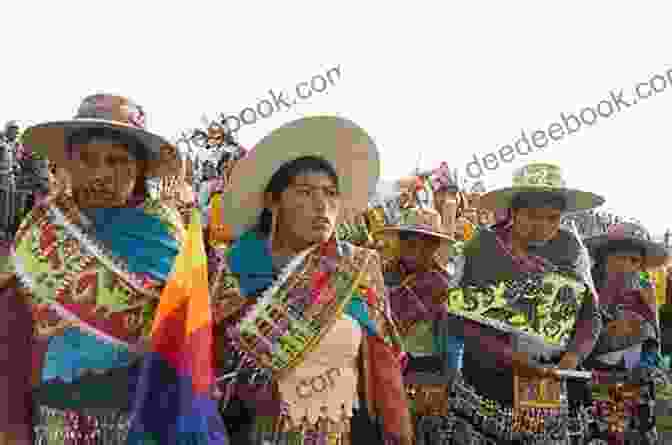 In recent decades, the recognition and protection of indigenous rights have become central to Bolivia's conflict resolution efforts. The 2009 Constitution established Bolivia as a "plurinational state," recognizing the rights and autonomy of 36 indigenous nations. This constitutional framework has provided a legal basis for indigenous communities to participate in decision-making processes and assert their cultural and political identities.
In recent decades, the recognition and protection of indigenous rights have become central to Bolivia's conflict resolution efforts. The 2009 Constitution established Bolivia as a "plurinational state," recognizing the rights and autonomy of 36 indigenous nations. This constitutional framework has provided a legal basis for indigenous communities to participate in decision-making processes and assert their cultural and political identities.
However, the implementation of indigenous rights has not been without challenges. Conflicts have arisen over land disputes, resource extraction projects, and the distribution of power and resources. Indigenous leaders have often faced resistance from powerful economic and political interests, testing the limits of the constitutional framework.
Social Movements and Grassroots Initiatives
 Social movements play a vital role in Bolivia's conflict resolution landscape. These movements, representing diverse constituencies such as labor unions, peasant organizations, and environmental groups, have been instrumental in articulating grievances, mobilizing support, and advocating for change. Social movements have challenged the status quo, pushed for government accountability, and promoted alternative conflict resolution mechanisms.
Social movements play a vital role in Bolivia's conflict resolution landscape. These movements, representing diverse constituencies such as labor unions, peasant organizations, and environmental groups, have been instrumental in articulating grievances, mobilizing support, and advocating for change. Social movements have challenged the status quo, pushed for government accountability, and promoted alternative conflict resolution mechanisms.
One prominent example is the Water Wars of 2000, where social movements mobilized mass protests against the privatization of Bolivia's water system. These protests ultimately led to the cancellation of the privatization contract and demonstrated the power of grassroots activism in shaping public policy.
The Political Landscape and Governance Structures
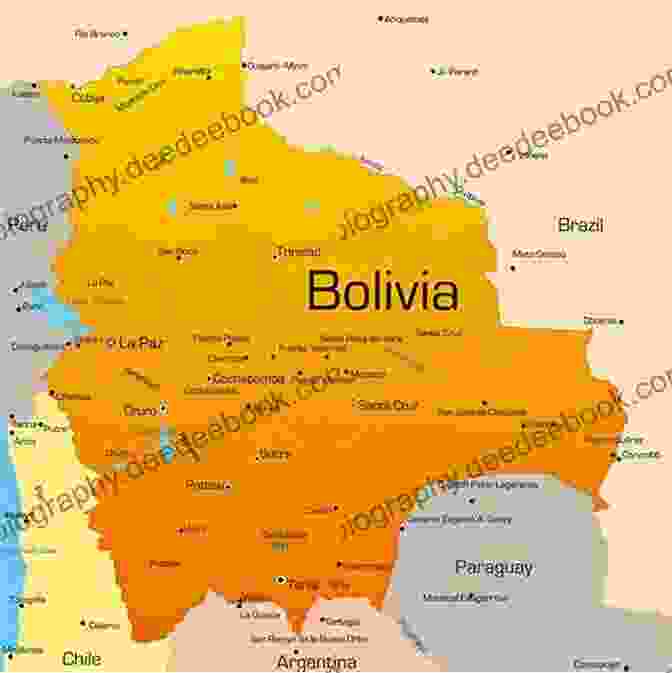 Bolivia's political landscape is characterized by a multi-party system, with a history of political instability and frequent changes in government. The country's political institutions, including the legislature and judiciary, have been subject to challenges regarding their effectiveness and independence. In some cases, political tensions have escalated into violent conflicts, as witnessed during the 2019 political crisis.
Bolivia's political landscape is characterized by a multi-party system, with a history of political instability and frequent changes in government. The country's political institutions, including the legislature and judiciary, have been subject to challenges regarding their effectiveness and independence. In some cases, political tensions have escalated into violent conflicts, as witnessed during the 2019 political crisis.
Governance structures in Bolivia have evolved over time, seeking to address the challenges of decentralization and indigenous autonomy. The country has implemented a system of "autonomies," where subnational regions have varying degrees of self-governance. This approach aims to provide greater local control over resource allocation and decision-making, promoting conflict resolution at the local level.
International Influences and Peacebuilding Efforts
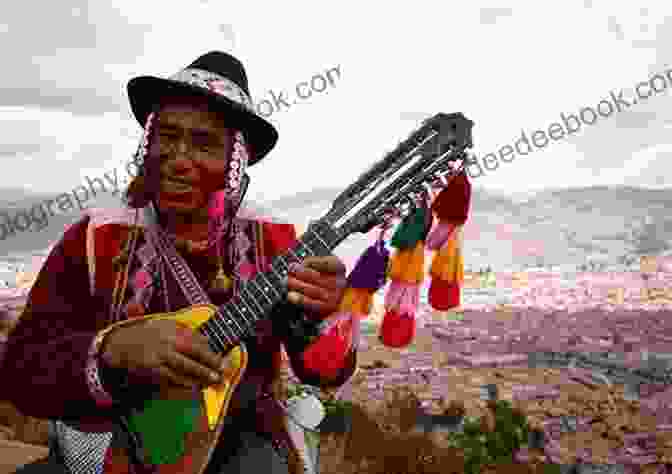 International organizations and actors have played a significant role in Bolivia's conflict resolution processes. The United Nations, the Organization of American States, and various non-governmental organizations have provided support for peacebuilding initiatives, mediation efforts, and capacity building. International aid and technical assistance have contributed to strengthening conflict resolution mechanisms and promoting dialogue and reconciliation.
International organizations and actors have played a significant role in Bolivia's conflict resolution processes. The United Nations, the Organization of American States, and various non-governmental organizations have provided support for peacebuilding initiatives, mediation efforts, and capacity building. International aid and technical assistance have contributed to strengthening conflict resolution mechanisms and promoting dialogue and reconciliation.
However, international influences can also present challenges. External actors may have their own agendas and interests, which can sometimes clash with local priorities and sensitivities. Balancing the need for external support with preserving national sovereignty and self-determination remains a delicate task for Bolivian policymakers.
Challenges and Complexities
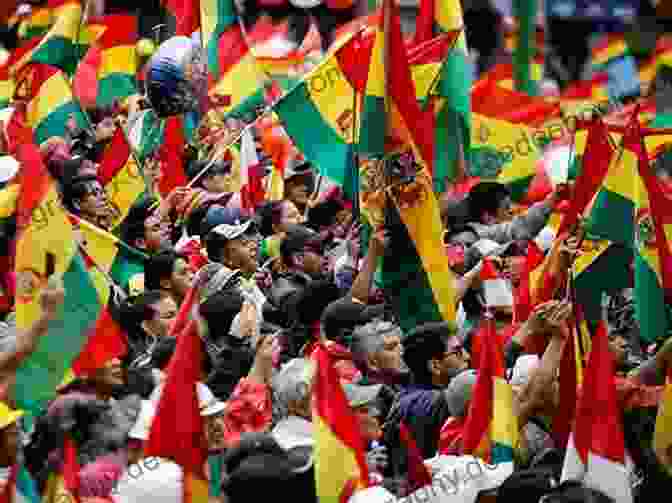 Despite significant progress, Bolivia's conflict resolution system continues to face challenges and complexities. Poverty, inequality, and social exclusion remain underlying factors that can contribute to conflicts. Weak institutions, corruption, and lack of transparency can undermine trust and hinder effective conflict management.
Despite significant progress, Bolivia's conflict resolution system continues to face challenges and complexities. Poverty, inequality, and social exclusion remain underlying factors that can contribute to conflicts. Weak institutions, corruption, and lack of transparency can undermine trust and hinder effective conflict management.
Additionally, the legacy of historical grievances and the ongoing struggle for indigenous rights and social justice can make finding common ground and reaching lasting solutions a difficult task. Balancing the interests of different stakeholders, including the state, indigenous communities, and various social groups, requires a delicate balancing act.
: A Journey of Conflict and Resolution
Bolivia's journey of conflict resolution is a complex and ongoing process, shaped by a legacy of social and economic inequalities, indigenous rights, social movements, and the intricacies of the political landscape. Despite challenges and complexities, the country has made progress in recognizing and addressing the root causes of conflict and implementing mechanisms for dialogue, mediation, and grassroots participation.
The road ahead requires continued efforts to strengthen institutions, promote inclusivity, and address underlying social and economic issues. International cooperation and support can complement national efforts, but ultimately, the success of Bolivia's conflict resolution system will depend on the commitment of its people to dialogue, reconciliation, and the pursuit of a more just and equitable society.
5 out of 5
| Language | : | English |
| File size | : | 18005 KB |
| Text-to-Speech | : | Enabled |
| Enhanced typesetting | : | Enabled |
| Word Wise | : | Enabled |
| Print length | : | 296 pages |
| Screen Reader | : | Supported |
| Item Weight | : | 1.32 pounds |
| Paperback | : | 528 pages |
| Dimensions | : | 5.59 x 1.02 x 8.86 inches |
Do you want to contribute by writing guest posts on this blog?
Please contact us and send us a resume of previous articles that you have written.
 Page
Page Chapter
Chapter Story
Story Library
Library E-book
E-book Magazine
Magazine Paragraph
Paragraph Shelf
Shelf Glossary
Glossary Bibliography
Bibliography Foreword
Foreword Preface
Preface Footnote
Footnote Manuscript
Manuscript Scroll
Scroll Codex
Codex Tome
Tome Bestseller
Bestseller Classics
Classics Library card
Library card Biography
Biography Autobiography
Autobiography Dictionary
Dictionary Thesaurus
Thesaurus Librarian
Librarian Catalog
Catalog Card Catalog
Card Catalog Borrowing
Borrowing Stacks
Stacks Periodicals
Periodicals Scholarly
Scholarly Reserve
Reserve Academic
Academic Journals
Journals Reading Room
Reading Room Special Collections
Special Collections Study Group
Study Group Thesis
Thesis Reading List
Reading List Theory
Theory Abba
Abba Jacob Weisberg
Jacob Weisberg Maurice Broaddus
Maurice Broaddus Kristian Brodie
Kristian Brodie John Fletcher
John Fletcher Wayne Barrett
Wayne Barrett Tony Lewis
Tony Lewis John Ehle
John Ehle Ellen Israel Goldberg
Ellen Israel Goldberg Cassandra Faye
Cassandra Faye David G Hebert
David G Hebert Humberto Fontova
Humberto Fontova Susan Conners
Susan Conners Brianna Wiest
Brianna Wiest Delancey Stewart
Delancey Stewart Mattie Richardson
Mattie Richardson Joseph K Loughlin
Joseph K Loughlin Frank Fischer
Frank Fischer Sebastian Raschka
Sebastian Raschka Dave Richard Palmer
Dave Richard Palmer
Light bulbAdvertise smarter! Our strategic ad space ensures maximum exposure. Reserve your spot today!

 Patrick RothfussUnveiling the Untold Secrets of North American Spies: A New Revisionist Essay
Patrick RothfussUnveiling the Untold Secrets of North American Spies: A New Revisionist Essay Chinua AchebeFollow ·7.2k
Chinua AchebeFollow ·7.2k Noah BlairFollow ·13.7k
Noah BlairFollow ·13.7k Tyler NelsonFollow ·4k
Tyler NelsonFollow ·4k Derek CookFollow ·19.2k
Derek CookFollow ·19.2k Ismael HayesFollow ·6.7k
Ismael HayesFollow ·6.7k Andrew BellFollow ·10.2k
Andrew BellFollow ·10.2k Jeffery BellFollow ·13k
Jeffery BellFollow ·13k J.D. SalingerFollow ·10.1k
J.D. SalingerFollow ·10.1k

 Franklin Bell
Franklin BellSecond Edition Pdf No Audio: A Comprehensive Guide to the...
The Second Edition...

 Jackson Blair
Jackson BlairTrends and Issues in Instructional Design and Technology
Instructional...

 Mario Vargas Llosa
Mario Vargas LlosaEnchanting Enigma Variations and Triumphant Pomp and...
The Enigma Variations: A...

 Dwight Blair
Dwight BlairTime Between Us: A Novel That Explores the Power of...
Prepare to be swept away by...
5 out of 5
| Language | : | English |
| File size | : | 18005 KB |
| Text-to-Speech | : | Enabled |
| Enhanced typesetting | : | Enabled |
| Word Wise | : | Enabled |
| Print length | : | 296 pages |
| Screen Reader | : | Supported |
| Item Weight | : | 1.32 pounds |
| Paperback | : | 528 pages |
| Dimensions | : | 5.59 x 1.02 x 8.86 inches |


